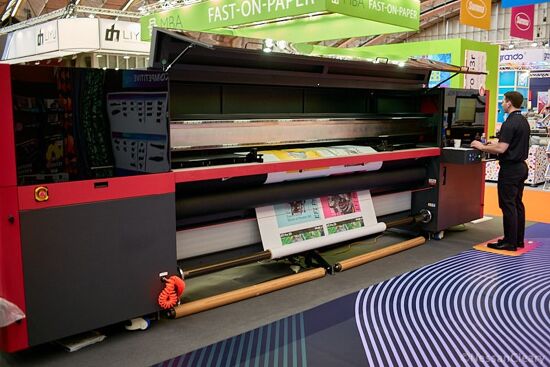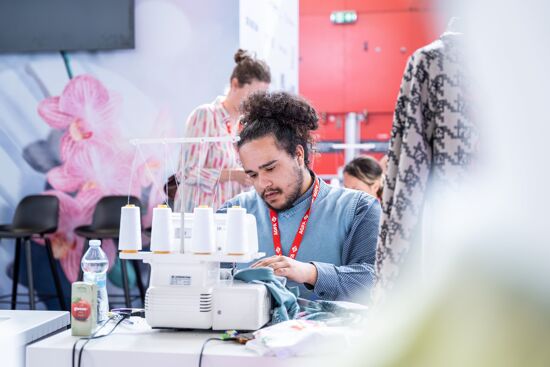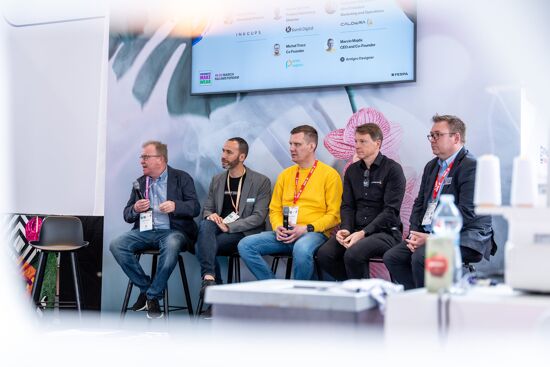Why Independent Textile Testing Houses are so important
.jpg?width=750)
Debbie McKeegan discusses the importance of verifying your products and claims. The production and trading of textiles requires testing, inspection, and certification services to ensure that they conform to international quality related standards.
Objectivity, credibility and scientific method are the bywords for the International Textile Testing Industry.
The vibrant and growing textile testing market reached $7.2 billion in 2020 (Markets and Markets) and numbered amongst its key players are: SGS Group (Switzerland), Bureau Veritas SA (France), Intertek Group Plc (U.K.), TUV SUD Group (Germany), TÜV Rhineland Group (Germany), Asia Inspection Ltd (Hong Kong), British Standards Institution (BSI) Group (U.K.), Centre Testing International (CTI) (China), Hohenstein Institute (Germany), SAI Global Ltd (Australia), TESTEX AG (Switzerland), and Eurofins Scientific (Luxembourg).
.jpg?lang=en-GB)
With an expected CAGR of 8.1% by 2025, the testing industry has been fuelled by the rising production of textiles and the increasing requirement for the verification of textile products.
The production and trading of textiles requires testing, inspection, and certification services to ensure that they conform to international quality related standards.
Testing, inspection, and certification services helps manufacturers ensure that their products conform to technical safety and quality related standards and regulations, which in turn increases the marketability of their products and reduces the pre-production cost of textiles.
Certification of textile services provides confirmation of test or inspection done against governments and international standardisation institutions’ set of pre-defined standards.
It helps manufacturers trade globally, as it also assures buyers that a product complies with the technical safety, performance, and quality related regulatory standards.
International Certification & Regulation, the main drivers of this growth take many forms, but broadly falls into three categories, Safety, Performance and Environmental.
.jpg?lang=en-GB)
Top of the list is Safety, which deals with a wide range of issues concerning such diverse topics as Flammability, Anti-Bacterial Protection and Toxicity.
In this sector the need for regulation is self evident, and the role of the textile testing house is vital in protecting the consumer and ensuring that manufacturers claims have been independently verified.
Incidents such as the Woolworth’s fire of 1979, or even the Grenfell Tower Fire of 2017 could arguably have been prevented if independent material testing had been rigorously employed, and, as a result, Independent Testing has now become a mantra for most of the Textile Industry.
But whilst Safety testing is important, it is closely followed by Performance testing. This is an important tool in the armoury of the consumer as they seek to verify manufacturers product claims.
It is also a vital component of the global textile import sector, where independent on-site inspections against defined standards are fundamentally the only means with which an importer can assure themselves that they will receive precisely what they bought.
As with safety standards, performance standards also have a wide range, encompassing, amongst others: testing for Fabric Construction, Light and Wash fastness, Rub fastness, Water resistance and Abrasion resistance.
.jpg?lang=en-GB)
Many of the tests used in this sector are simple, however, to be beneficial they have to be independently and professionally managed. Here, the role of the Independent testing house is critical, if the confidence of either the consumer or the importer is to be maintained.
Professional and qualified inspection teams and their state-of-the-art laboratories are equipped with the tools and technology that get this job done, and they perform this vital function reliably and expertly.
Beyond Safety and Performance the independent textile testing house performs one more vital and imperative function, that of verifying environmental claims.
With increasing environmental concerns, the textile industry must prepare to go under the environmental microscope. Over-arching claims of product sustainability that ubiquitously populate both printed and online media have ensured that clever words alone cannot solve the textile industry’s environmental issues.
‘Greenwashing’, as it has come to be known, has turned out to be a pernicious bandwagon sowing false hopes to an unsuspecting public, who have little hope of verifying the declarations of eco probity and thereby satisfy themselves that they have made an eco-friendly purchase decision.
Here the role of the independent testing house is crucial in the context of protecting the consumer and ensuring that environmental information is independently verified.
In this setting, the role of OEKO-TEX cannot be underestimated.
Formed originally in 1992 by the Austrian Research Institute and the Hohenstein Laboratories OEKO-TEX has grown to consist of 18 independent research and test institutes in Europe and Japan and has adopted the United Nations Sustainable Development Goals (SDGs) as a blueprint.
OEKO-TEX’s Eco Passport is an independent certification for chemicals, colourants and accessories used in the manufacturing of textiles, ensuring that they meet statutory requirements and are not harmful to human health.
OEKO-TEX’s Made In Green is a traceable product label for all kinds of textiles that have been manufactured in environmentally friendly facilities under safe and socially responsible working conditions, and is made of materials that have been tested for harmful substances.
Underpinning all of OEKO-TEX’s work is the network of independent textile testing houses whose impartiality know-how and professionalism create an ultimately reliable environmental certification system.
Undoubtedly, considering all the factors, whether consumer confidence or consumer protection - independent textile testing is a vital component of the textile eco system. Giving certainty and reassurance with a strict blend of science and empiricism enables the independent textile testing house to provide the neccesary building blocks for the textile industry to become increasingly responsible as it faces up to the widespread challenges of a truly global economy and its environmental impact.
In our recent podcast, we discussed the future of molecular tagging technology and its use specifically within the textile industry with Meilin Wan of Applied DNA Sciences. Molecular tagging inserts encrypted information directly into a fibre or a yarns DNA (it can even be used for inks). This information can take many forms: fibre, origin, certification, brand information, and all are good examples of the information now required. With which we can then, with certainty - test, track and trace - the components of the textiles we consume. Applied DNA Sciences and their technologies offer a powerful suite of tools with which the textile industry can improve transparency and traceability across the entire supply chain.
Topics
Interested in joining our community?
Enquire today about joining your local FESPA Association or FESPA Direct
Recent news

Are analytics services worthwhile for wide format printing?
Nessan Cleary shares how press manufacturers are increasingly offering machine analytics services and shares if these are good value for money in the wide format sector.

Smart factories and customisation technology explored at Personalise Make Wear 2024
FESPA's Textile Ambassador, Debbie McKeegan speaks to industry specialists at Personalise Make Wear at Personalisation Experience and Sportswear Pro 2024 held in Amsterdam. Each day of the exhibitions Debbie hosted a fire-side chat with these specialists to discuss various industry topics. During this Fire-side chat with Antigro, Caldera, Print Logistics, Inkcups and Kornit Digital they discuss the role of digital technologies in personalisation, reshaping the supply chain, the future of manufacturing and more.

The pros and cons of Digital Signage and Printed Signage
Sonja Angerer discusses the pros and cons of both digital signage and printed signage. Current developments such as artificial intelligence and spatial computing are changing the situation once again. How will this shift affect printers?
